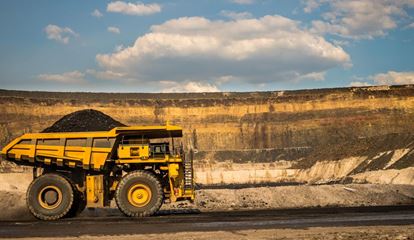BIS taps into AI for truck safety
Australian Business Review | April 19, 2021
Private equity-backed Bis Industries says it plans push further beyond its traditional mining services offerings and into the long haul trucking industry through a new partnership with Arizona tech company Edge3.
Monitoring systems that track warning signs of fatigue in truckies and heavy equipment operators are rapidly becoming a standard in both the logistics and mining sectors, using dash cameras and wearable devices to warn for signs a driver is becoming dangerously tired, such as head nodding, drooping eyelids, or yawning.
But Bis Industries says its latest technology offering goes far beyond that, marrying artificial intelligence and machine learning to enable its systems to spot other behaviours that may pose safety risks in real time – such as failing to wear seatbelts, using mobile phones or smart watches, or a driver dropping their attention from the road to reach across the cab for a snack of a bottle of water, left out of reach at an earlier stop.
Bis chief executive Brad Rogers told The Australian the company had launched the Trifecta technology in its own vehicles two years ago, but had recently signed a deal to commercialise its application everywhere outside the US, and outside the company’s traditional base in the mining industry.
“We saw from when we started monitoring this about two years ago, we‘re seeing 100 per cent reduction in seat belt infractions, 100 per cent reduction in smoking while driving, 100 per cent reduction in tampering with systems in the cab – that’s something that you want to obviously watch out for when you’re implementing a new system,” he said,
“And we’ve seen an 80 per cent reduction in mobile phone usage. And that‘s something which is actually quite widespread, as you can imagine, people kind of picking out their phone momentarily to play an update on social media or whatever. And that’s something that should be a real worry for the industry.”
Bis has installed its Trifecta system in vehicles across its operations, but says it sees a future far beyond its own business.
“Driving road trains on public roads is obviously I would argue greater application and importance as one example of where this thing will be used. Because you‘re then interacting with the public and the risk of someone doing something wrong in an accident resulting is much greater,” Mr Rogers said.
While existing fatigue management systems can pick up similar risky behaviour in drivers and operators, Mr Rogers says using artificial intelligence helps its own systems throw up questions about behaviours not previously identified as a risk.
“We‘ve got a control room centre and the system spits out ‘what about this? What about that?’ And we say no, that’s okay or well, you need to look out for those instances.
“It can tell you stuff that you aren‘t looking for. So smartwatch usage is a source of distraction that we weren’t looking out for. And the system started spitting out instances of people being distracted by fiddling with their wrist while driving. And so that thing gives us the ability to provide feedback to operators and create standards around those sorts of things.”
The extent to which employees should be monitored by their bosses while working is becoming a flash point in industrial relations, and Mr Rogers said the company had taken a cautious approach to introducing the technology in its own mining services business.
“The way that we did that was to say, we are only going to focus on black and white infractions, things that you all know are dismissal events if you‘re doing them – so that was using your mobile phone, not wearing seatbelts, that sort of thing.”
The behaviour picked up in cabs had forced the company to think through some of the issues that weren’t so black and white, he said.
“We were seeing a number of instances of people reaching across the cab to grab a water bottle to drink. And we don‘t want people to stop drinking water while you’re driving, that’s fine. But that’s a dangerous thing to be doing when you’re operating a heavy vehicle at speed. So how can we move together to make sure that you’re able to drink water, you’re able to eat in the course of the shift, without having to fidget around in your cab.
“So it has enabled those sorts of more proactive productive discussions moving on from the pure sort of punitive black and white infractions.”
Read the original article: https://www.theaustralian.com.au/business/mining-energy/bis-taps-into-ai-for-truck-safety/news-story/912fe5776f95aa32d49f193f9ee5d761








